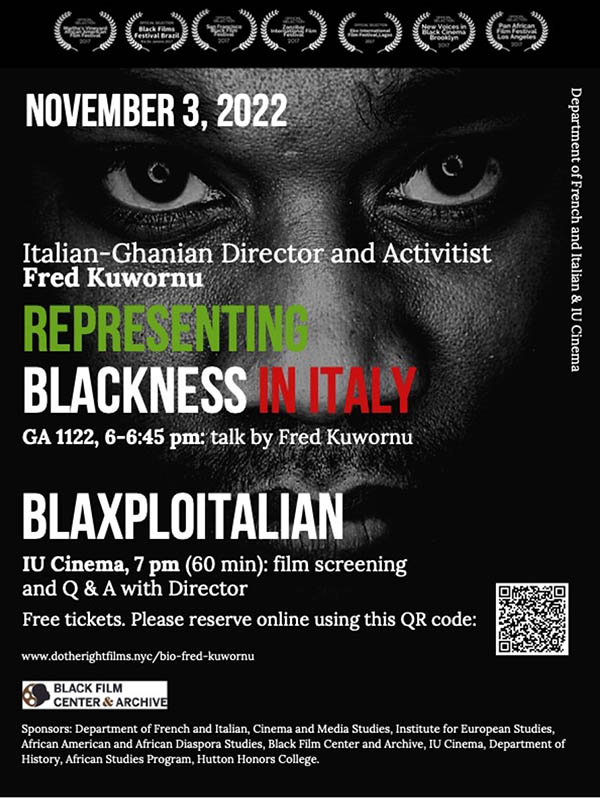
Fred Kwornu. Fall 2022, organized by Professor Colleen Ryan and Black Film Center & Archive
By Margaret Gray
At a party and book exhibit hosted by the College of Arts and Sciences this past December to celebrate faculty authors and editors of books published since 2020, department faculty were represented by no fewer than eight volumes. Leading the pack was Massimo Scalabrini’s prize-winning Commedia e Civiltà: Dinamiche anticonflittuali nella letteratura Italiana del Cinquecento, which received the American Association of Teachers of Italian Book Award (2022) for Literary, Critical Theory, and Cultural Studies. Originating in classroom discussions with graduate students and written during the darkest months of the COVID pandemic, the book – despite the somber context of its writing – focuses on 16th century Italian literature’s propensity towards the comic, grounded in classical and ethically oriented sources and re-purposed to found a modern civiltà, or society.
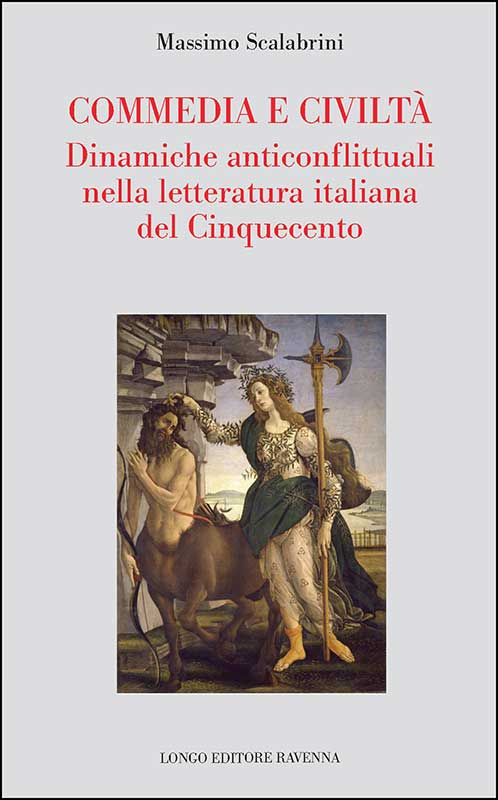
Across the border, French writers of the Renaissance – as Eric MacPhail’s Odious Praise: Rhetoric, Religion and Social Thought argues – engage in re-purposing of their own as they employ praise as a strategy of critique, thereby challenging cultural values. Such paradoxical use of praise does not occur in the Catholic liturgy, however, at least not as depicted by Dante; instead, Visiting Assistant Professor Helena Phillips-Robins’s Liturgical Song and Practice in Dante’s “Commedia” explores the ways in which Dante’s use of the Catholic liturgy, a familiar presence in the daily lives of his readers, invites them performatively into a relationship with the divine.
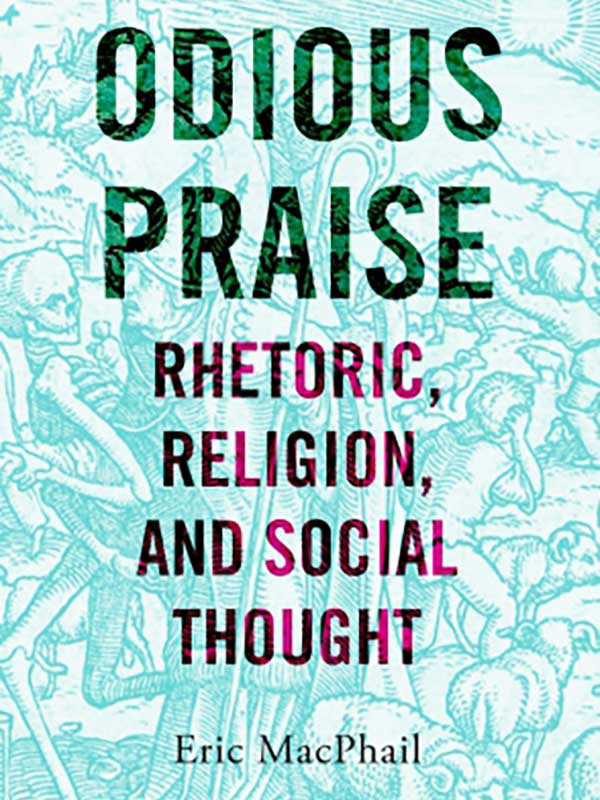
Serendipity favored the development of several faculty projects. A change of scenery was apparently crucial for Hall Bjørnstad’s The Dream of Absolutism: Louis XIV and the Logic of Modernity and Margot Gray’s Stolen Limelight: Gender, Display, and Displacement in Modern Fiction in French. A year’s leave spent on the Madison, WI, campus brought Bjørnstad the realization that the book he was in the process of not writing on “royal exemplarity” at the time of Louis XIV was really a book demanding to be written on the “dream of absolutism.” Across the Atlantic, it was during a conversation over a potato omelet in a small brasserie in Paris’s rue de Vaugirard that Gray discovered that various smaller projects involving 20th-century French and Francophone novelists all had a powerfully overarching theme: display manipulated for purposes of displacement.
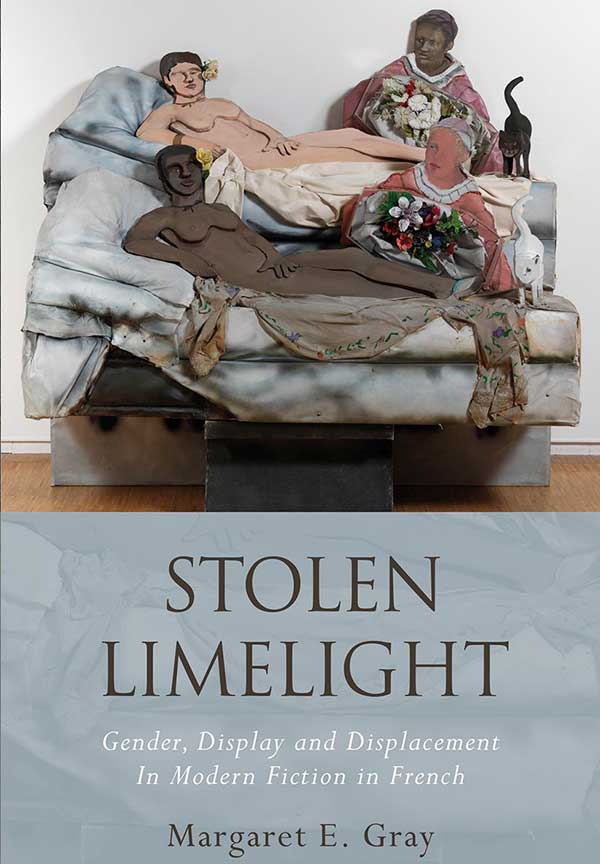
Despite what its author calls its “bleak” title, Oana Panaïté’s Necrofiction and the Politics of Literary Memory emerged from a fortunate series of serendipitous encounters, beginning with colleague Eric MacPhail’s work on literary tombs. As for many faculty, the arguments of Necrofiction, honed in a graduate classroom, owe a debt to our “amazingly bright and engaged” students, as well as to supportive colleagues and friends who acted as sounding boards. Panaïté points to the importance of additional serendipitous encounters, from Achille Mbembe’s challenging reflections on fraught contemporary politics and culture to visual work by the late Senegalese artist Kalidou Sy – whose “haunting” painting “Joola” became, as Panaïté puts it, “thanks to the infinite generosity and unfailing friendship of my colleague and mentor, Eileen Julien, far more than the cover.”
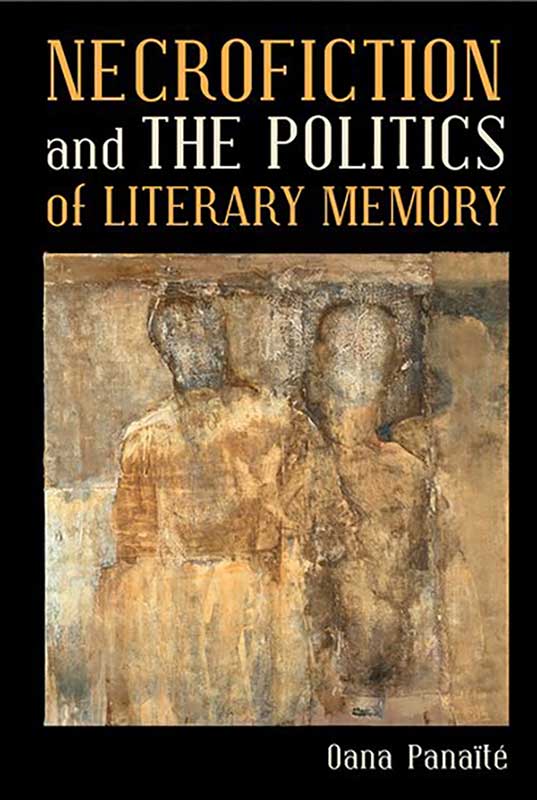
Certain faculty authors took their studies well beyond the confines of French, Francophone and Italian traditions, however. Marco Arnaudo explains that his book, Pulp! Skirmish Adventure Wargaming, contains a war game inspired by 1930s American fiction. Barbara Vance co-edited, with two other colleagues in the field – including husband and Visiting Scholar Richard Janda – the Handbook of Historical Linguistics: Volume II, which offers a range of new insights, from linguistic evidence for reconstructing human prehistory, to the relevance of field biology for studying language variation and change, to historical treatments of languages as diverse as French, Vietnamese, and American Sign Language.
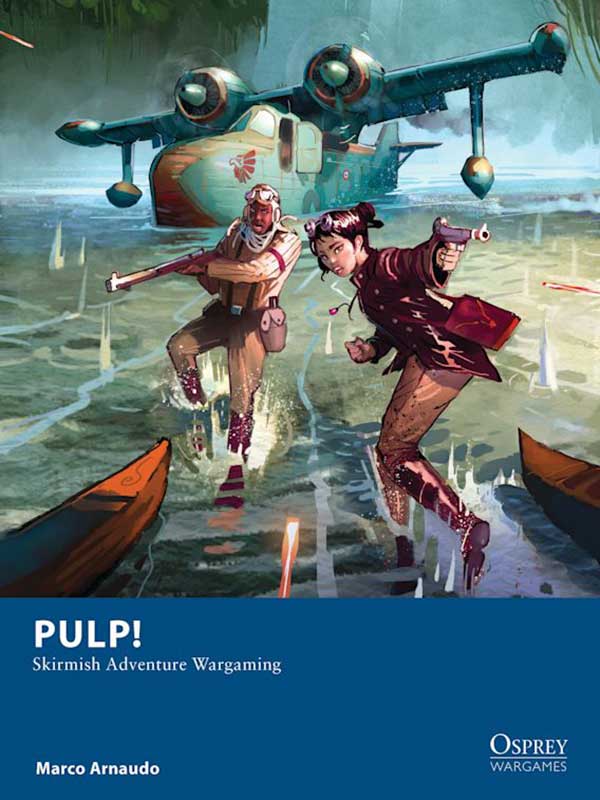
Most recently, Eric MacPhail’s edited volume, A Companion to Erasmus, explores Erasmus’s life, work, and legacy, while also offering an expert synthesis of the most important research in the field and contributing importantly to the many disciplines influenced by Erasmus, including philosophy, religion, history, rhetoric, education, and the history of the book. Published just this past January, MacPhail’s Companion gets faculty publications for 2023 off to a flying start!
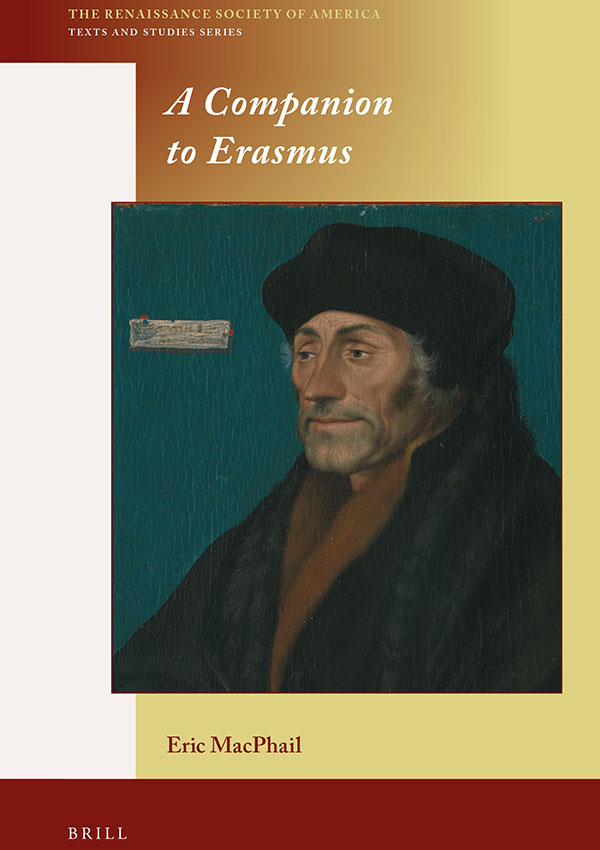

Fred Kwornu. Fall 2022, organized by Professor Colleen Ryan and Black Film Center & Archive
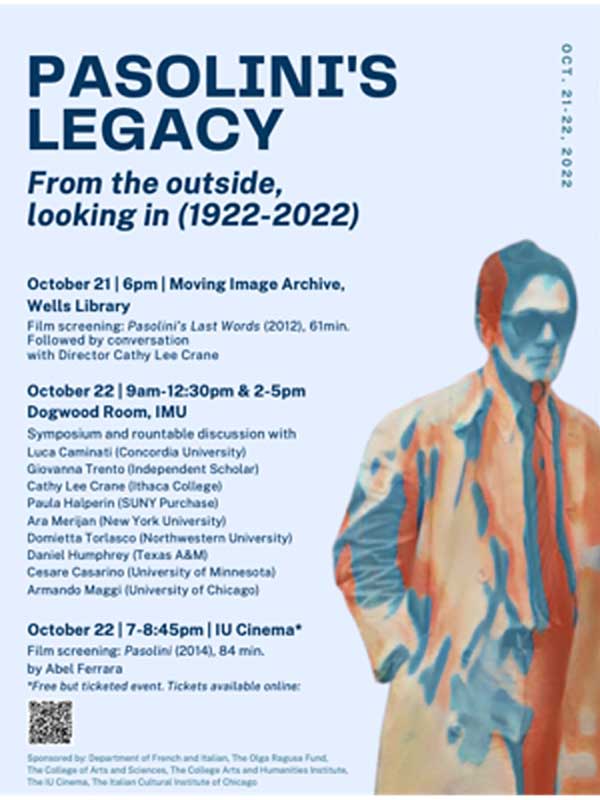
Pasolini. Fall 2022, organized by Professor Colleen Ryan and Lucia Casiraghi
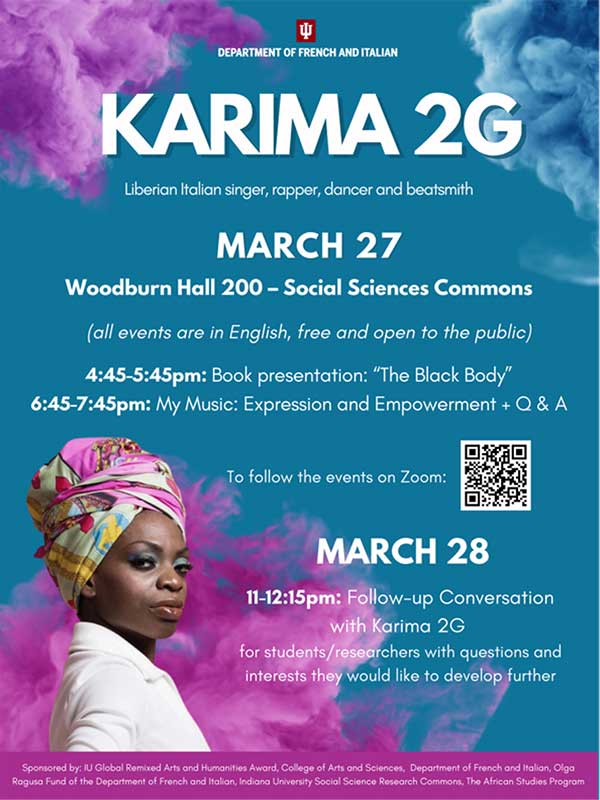
Karima 2G. Spring 2022, organized by Professor Colleen Ryan and Lucia Casiraghi